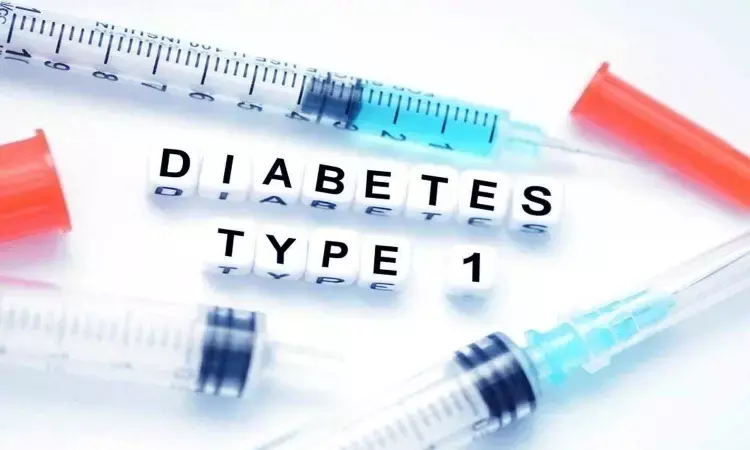- Home
- Medical news & Guidelines
- Anesthesiology
- Cardiology and CTVS
- Critical Care
- Dentistry
- Dermatology
- Diabetes and Endocrinology
- ENT
- Gastroenterology
- Medicine
- Nephrology
- Neurology
- Obstretics-Gynaecology
- Oncology
- Ophthalmology
- Orthopaedics
- Pediatrics-Neonatology
- Psychiatry
- Pulmonology
- Radiology
- Surgery
- Urology
- Laboratory Medicine
- Diet
- Nursing
- Paramedical
- Physiotherapy
- Health news
- Fact Check
- Bone Health Fact Check
- Brain Health Fact Check
- Cancer Related Fact Check
- Child Care Fact Check
- Dental and oral health fact check
- Diabetes and metabolic health fact check
- Diet and Nutrition Fact Check
- Eye and ENT Care Fact Check
- Fitness fact check
- Gut health fact check
- Heart health fact check
- Kidney health fact check
- Medical education fact check
- Men's health fact check
- Respiratory fact check
- Skin and hair care fact check
- Vaccine and Immunization fact check
- Women's health fact check
- AYUSH
- State News
- Andaman and Nicobar Islands
- Andhra Pradesh
- Arunachal Pradesh
- Assam
- Bihar
- Chandigarh
- Chattisgarh
- Dadra and Nagar Haveli
- Daman and Diu
- Delhi
- Goa
- Gujarat
- Haryana
- Himachal Pradesh
- Jammu & Kashmir
- Jharkhand
- Karnataka
- Kerala
- Ladakh
- Lakshadweep
- Madhya Pradesh
- Maharashtra
- Manipur
- Meghalaya
- Mizoram
- Nagaland
- Odisha
- Puducherry
- Punjab
- Rajasthan
- Sikkim
- Tamil Nadu
- Telangana
- Tripura
- Uttar Pradesh
- Uttrakhand
- West Bengal
- Medical Education
- Industry
Women with type 1 diabetes experience a shorter reproductive period

CLEVELAND: The length of the female reproductive period (the time from the onset of menses to the final menstrual period) has important health implications. A new study compared the length of reproductive periods for women with type 1 diabetes with women without diabetes to confirm the effect diabetes has on the female reproductive system. Study results are published online today in Menopause, the journal of The North American Menopause Society (NAMS).
Insulin plays a key role in regulating female reproductive function, and previous studies have shown the effect of insulin deficiency on a woman's reproductive system. Until now, however, little was known about the effect of type 1 diabetes on the age of natural menopause.
This new study involving nearly 300 women compared the length of reproductive periods for women with type 1 diabetes with women without diabetes. It concluded that women with type 1 diabetes have shorter reproductive periods, with delayed menarche and earlier natural menopause as a result of insulin deficiency and hyperglycemia disrupting their reproductive system's normal function. Of note, however, is the fact that these findings only relate to women who were diagnosed with type 1 diabetes before reaching the age of menarche.
Because menopause is associated with a number of physiologic and metabolic changes, and early natural menopause is linked to increased cardiovascular disease and mortality, there is ongoing interest in identifying factors that provide some indication of when a woman will enter menopause. The researchers suggest that more research is needed to help determine modifiable factors that contribute to early menopause to improve the reproductive health of women with diabetes.
Results are published in the article "Women with type 1 diabetes (T1D) experience a shorter reproductive period compared with nondiabetic women: The Pittsburgh Epidemiology of Diabetes Complications (EDC) study and the Study of Women's Health Across the Nation (SWAN)."
"This study found that women with the onset of type 1 diabetes before menarche were at increased risk for a shorter reproductive lifespan. Thus, these women are not only at risk for premature ovarian aging because of early-onset type 1 diabetes, they are also at increased risk for cardiovascular disease, osteoporosis, and early mortality because of early natural menopause. Understanding these risks and targeting appropriate risk-reducing strategies are key to optimizing the health and quality of life of these women," says Dr. Stephanie Faubion, NAMS medical director.
Dr Kamal Kant Kohli-MBBS, DTCD- a chest specialist with more than 30 years of practice and a flair for writing clinical articles, Dr Kamal Kant Kohli joined Medical Dialogues as a Chief Editor of Medical News. Besides writing articles, as an editor, he proofreads and verifies all the medical content published on Medical Dialogues including those coming from journals, studies,medical conferences,guidelines etc. Email: drkohli@medicaldialogues.in. Contact no. 011-43720751


